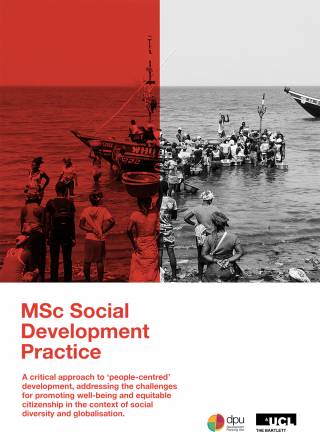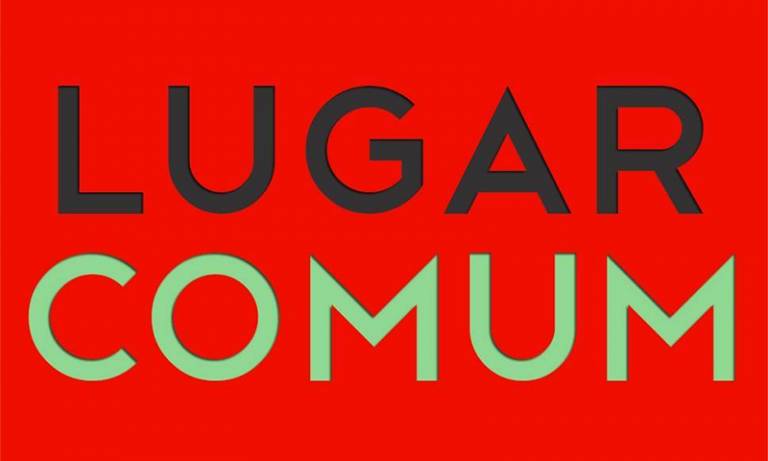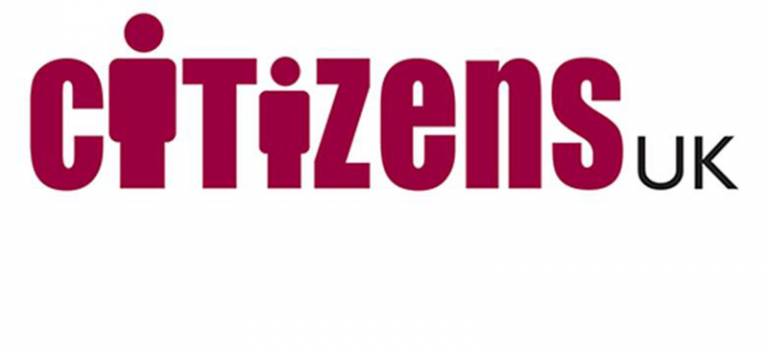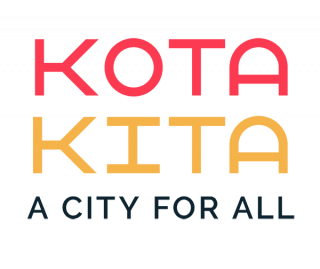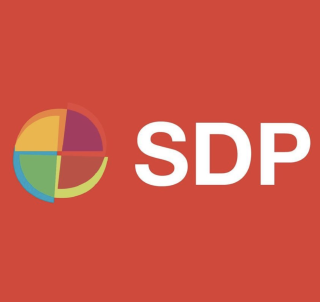Each year, our Social Development Practice MSc students focus on a two-week action-learning project in an urban area of the Global South, embedding their learnings in a real life case study.
About our overseas practice engagements
The overseas practice engagement forms part of our 'Social Development in Practice' module, which is a core aspect of our students' learnings and journeys to become better social development practitioners. Each year, our Social Development Practice MSc students focus on social development challenges and opportunities in an urban area of the Global South and engage in a two-week action-learning project that brings out the core concepts and concerns of our master's course (such as citizenship, wellbeing, social diversity and participation), and provides our students with practical research skills, such as engaging with issues raised by partners and communities in a local context. To date, we have engaged with partners and communities in Indonesia, Brazil, Kenya, and Tanzania.
To encourage collaborative working towards social justice outcomes, we centre relationships with partner organisations and local communities in all of our overseas practice engagements. Our students work in teams (usually with local students and/or community leaders) and carry out research to understand social, economic and urban policies, historical social movements, and the agency and everyday practices of residents on a given issue.
We particularly encourage our students to utilise participatory methods of primary research (such as interviews, transect walks and collaborative mapping) to provide evidence to support our partners' efforts of improving participation, recognition and redistribution of resources for residents.
Our previous overseas practice engagements
Discover where we've worked and the organisations we've partnered with in previous years:
2020 to present: Indonesia
In 2020, we began a four-year collaboration between the Social Development Practice MSc and Kota Kita through the Urban Citizenship Academy (UCA) to advance social justice and inclusive planning in Indonesia cities. UCA is an initiative by Kota Kita to engage a new generation of young leaders and support them in solving pressing urban problems.
Our engagement has been based on principles associated with knowledge co-production and action learning. In this collaborative programme, we explored the role of small-scale and informal food practices that impact food security in cities in Indonesia, and how these initiatives/practices can be improved, enabled, and supported to advance food security.
2023
In 2023, our overseas practice engagement focused on food security and urban food systems as a part of Kota Kita’s project in collaboration with the International Development Research Centre (IDRC). We conducted our research in two cities in Indonesia, Jakarta and Solo, where the project has been running since 2020, working with different actors, including informal food actors, governments, and non-government organisations that work on similar issues.
2022
For the third year of our overseas practice engagement with Kota Kita and the Urban Citizenship Academy (UCA), our Social Development Practice MSc students drew on principles of knowledge co-production to explore grassroots aspirations for 'inclusive public space' and 'inclusive planning and design' along the Kali Pepe Riverbank in Solo, Indonesia.
We asked our students to consider how varying aspirations and practices were underpinned by different social identities and how they related to policy and planning frameworks associated with inclusive planning, human rights commitments and conventions, and relevant social and urban development policies and instruments.
In 2022, our engagement was conducted remotely with students working together over two months to plan a one-week research activity in the selected neighbourhoods. Together with the participating community members, our students conducted interviews, transect walks, focus group discussions, behaviour mapping, surveys and policy research throughout their research.
Ultimately, this engagement built on and contributes to ‘Rivers as Inclusive Common Spaces: Co-Development of Kali Pepe Riverbank, Solo, Indonesia’, a collaborative participatory design project between Kota Kita and UN-Habitat aiming to establish a vision for an inclusive common public space in the riverbank area.
2021
In the second year of our overseas practice engagement with the Urban Citizenship Academy (UCA), we focused on advancing inclusive design and planning in Indonesian cities through a process of remote knowledge co-production. We aimed to foster learning between students from UCL and the UCA about disability and inclusive planning in Indonesian cities, and to learn from and contribute to the Indonesian Organizations of People with Disabilities and low-income neighbourhoods in Banjarmasin and Solo.
Students of the Social Development Practice MSc with UCA students and students from the Universitas Sebelas Maret (Surakarta) and Universitas Lambung Mangkurat (Banjarmasin) develop their research projects for two months from February to April 2021 remotely before conducting a two-remote research activity in April. Remote research activities included online interviews, participatory photography, mapping and policy research.
Additionally, our students and project partners organised an online webinar on 'Inclusive planning and design - City scale strategy' to explore strategies and advocate for city-wide inclusive development that support people with disabilities' citizenship practices, as well as their active involvement in city development processes.
- Discover the outputs from our 2021 project
- Online webinar 'Inclusive planning and design' - Hosted by Co-Programme Leader Professor Julian Walker with invited speakers Pong Cruz and Risnawati Utami.
2020
In the first year of our overseas practice engagement with the Urban Citizenship Academy (UCA), we explored inclusive citizenship in the city of Banjarmasin, Indonesia. Due to the COVID-19 pandemic, we took our engagement online and research activities adhered to COVID-19 protocols once restrictions had reduced in the city. Over two weeks in May, groups of our Social Development Practice MSc students and students from the UCA worked together remotely to develop a research proposal for the relevant entry points to promote inclusive planning design in a neighbourhood of Banjarmasin.
2016 to 2019: Brazil
From 2016 to 2019, we situated our overseas practice engagement in Salvador, Brazil, where we partnered with the research group 'Lugar Comum' (Common Place) from the faculty of architecture at the Universidade Federal da Bahia. Together, we carried out an action-learning initiative focusing on documenting collective practices claiming rights to the city in Salvador.
Throughought our field trips, our Social Development Practice MSc students gathered many lessons on the social conditions and practices employed by such collectives, which can support their ongoing mobilisation and inform the implementation of a building rehabilitation project in which Lugar Comum is involved.
Our student groups explored four thematic areas:
- Urban change and planning in Salvador and Brazil
- Social programmes and urban poverty
- Urban social mobilisation and collective action, and
- Social mapping and critical urban learning.
- Discover the outputs from our 2019 project
- Spaces of dialogue towards the advancement of the right to the city in Salvador, Bahia (PDF) This PDF also contains translations in Portuguese.
- Student newspaper - Common city: Learning together (PDF)
- Discover the outputs from our 2018 project
Student report - Bridging local collective practices towards a platform for the right to the city in Salvador, Bahia (PDF) This PDF also contains translations in Portuguese.
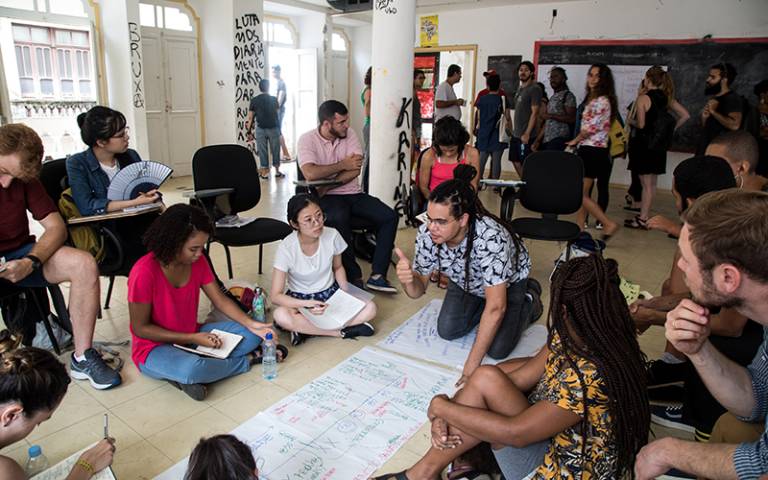
- Discover the outputs from our 2017 project
Student report - Collective practices, instruments for collective action and the right to the city in Salvador, Bahia (PDF) This PDF also contains translations in Portuguese.
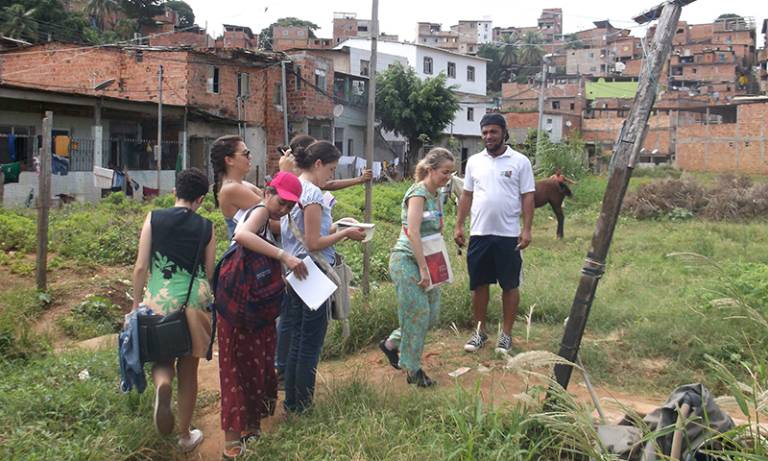
- Discover the outputs from our 2016 project
Student reports:
- English - Collective practices and the right to the city in Salvador, Brazil (PDF)
- Portuguese - Práticas coletivas e o direito à cidade em Salvador, Bahia (PDF)
Flickr Image/Slideshow Widget Placeholderhttps://www.flickr.com/photos/dpu-ucl/albums/72157670298400781
2013 to 2015: Kenya
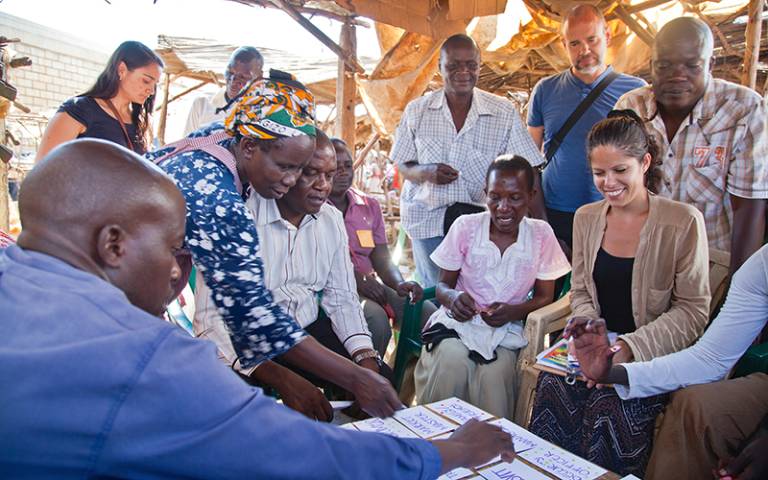
2015
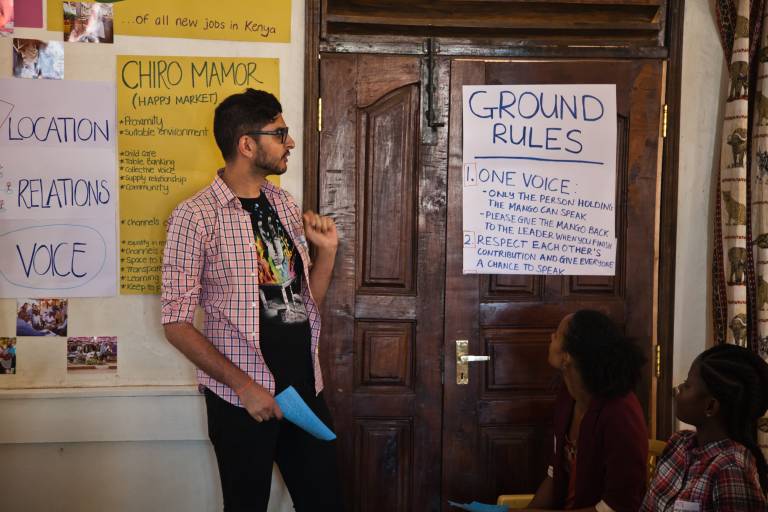
2014
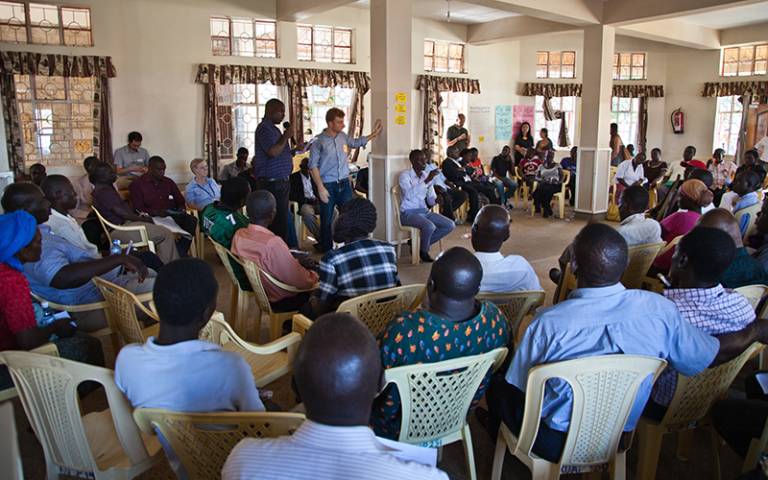
2013
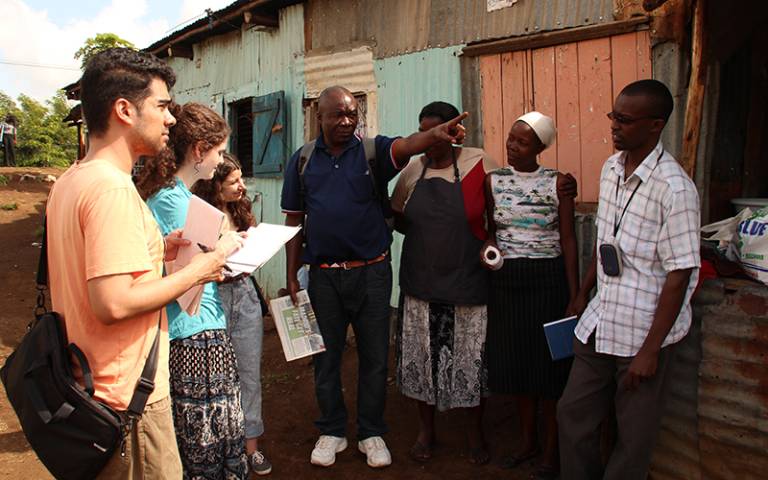
Our students were asked to examine four different water and sanitation interventions within three low-income neighbourhoods in Kisumu. Each intervention represented a different model of service delivery, and students were asked to assess the well-being impacts of each, exploring dimensions including dignity, health, empowerment, security, recognition, accessibility and equity in relation to diverse identities within the settlement.
2000 to 2012: Tanzania
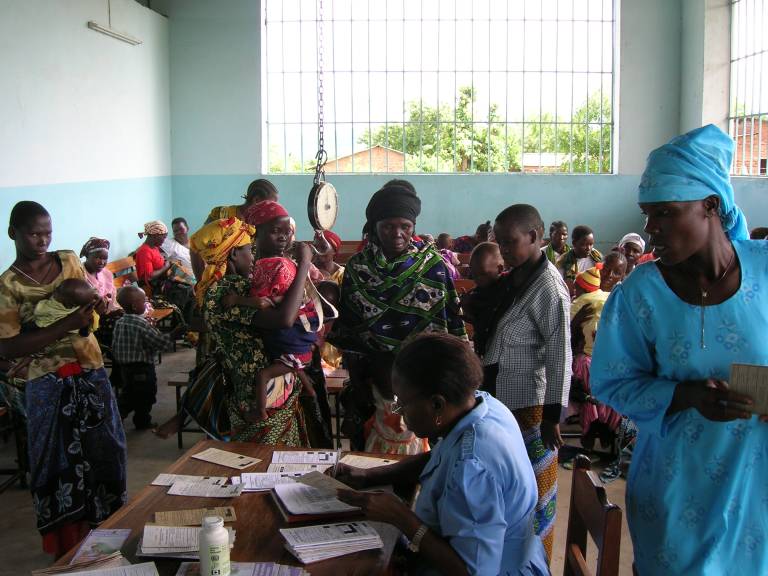
From 2000 to 2012, our Social Development Practice MSc students carried out research in Tanzania, in collaboration with the Community Development Department, Arusha Municipal Council, to explore the effectiveness of NGOs in Sekei ward.
 Close
Close


